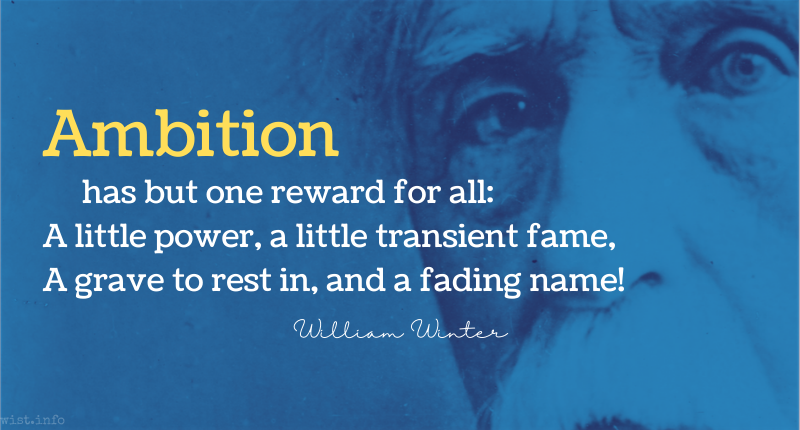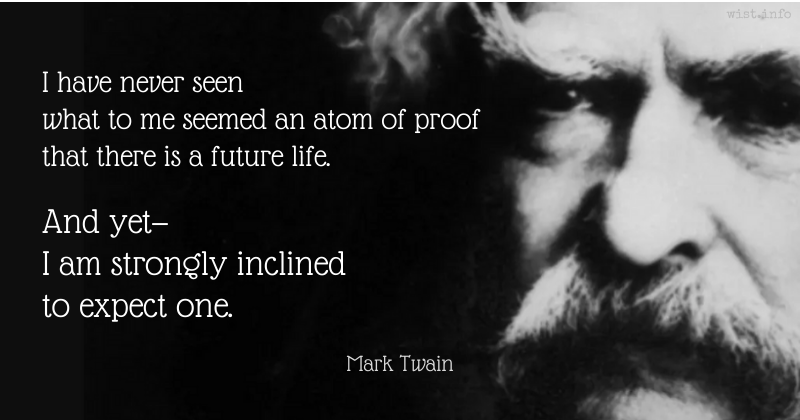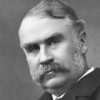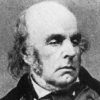He bent drooping his head to one side, as a garden poppy
bends beneath the weight of its yield and the rains of springtime;
so his head bent slack to one side beneath the helm’s weight.[Μήκων δ’ ὡς ἑτέρωσε κάρη βάλεν, ἥ τ’ ἐνὶ κήπῳ
καρπῷ βριθομένη νοτίῃσί τε εἰαρινῇσιν,
ὣς ἑτέρωσ’ ἤμυσε κάρη πήληκι βαρυνθέν.]Homer (fl. 7th-8th C. BC) Greek author
The Iliad [Ἰλιάς], Book 8, l. 306ff (8.306-308) (c. 750 BC) [tr. Lattimore (1951)]
(Source)
Describing the death of Gorgythion, son of Priam.
Alt. trans.:And, as a crimson poppy flow’r, surchargéd with his seed,
And vernal humours falling thick, declines his heavy brow,
So, of one side, his helmet’s weight his fainting head did bow.
[tr. Chapman (1611), ll. 265-67]
As full-blown poppies, overcharged with rain,
Decline the head, and drooping kiss the plain, --
So sinks the youth; his beauteous head, depressed
Beneath his helmet, drops upon his breast.
[tr. Pope (1715-20)]
As in the garden, with the weight surcharged
Of its own fruit, and drench’d by vernal rains
The poppy falls oblique, so he his head
Hung languid, by his helmet’s weight depress’d.
[tr. Cowper (1791), l. 351ff]
And as a poppy, which in the garden is weighed down with fruit and vernal showers, droops its head to one side, so did his head incline aside, depressed by the helmet.
[tr. Buckley (1860)]
Down sank his head, as in a garden sinks
A ripen'd poppy charg'd with vernal rains;
So sank his head beneath his helmet's weight.
[tr. Derby (1864), ll. 349-51]
Now he bowed his head as a garden poppy in full bloom when it is weighed down by showers in spring -- even thus heavy bowed his head beneath the weight of his helmet.
[tr. Butler (1898)]
And he bowed his head to one side like a poppy that in a garden is laden with its fruit and the rains of spring; so bowed he to one side his head, laden with his helmet.
[tr. Murray (1924)]
Fallen on one side, as on the stalk a poppy falls, weighed down by showring spring, beneath his helmet's weight his head sank down.
[tr. Fitzgerald (1974)]
As a garden poppy, burst into red bloom, bends
by its full seeds and a sudden spring shower,
so Gorgythion's head fell limp over one shoulder,
weighed down by his helmet.
[tr. Fagles (1990), ll. 349-53]
Off to one side his head he let drop, like a poppy that in some
garden is heavy with its own seed and the showers of springtime --
so to one side did his head incline, weighed down by his helmet.
[tr. Merrill (2007), ll. 306-08]
Quotations about:
death
Note not all quotations have been tagged, so Search may find additional quotes on this topic.
And fate? No one alive has ever escaped it,
neither brave man nor coward, I tell you —
it’s born with us the day that we are born.[Μοῖραν δ’ οὔ τινά φημι πεφυγμένον ἔμμεναι ἀνδρῶν,
οὐ κακὸν οὐδὲ μὲν ἐσθλόν, ἐπὴν τὰ πρῶτα γένηται.]Homer (fl. 7th-8th C. BC) Greek author
The Iliad [Ἰλιάς], Book 6, l. 488ff (6.488-489) (c. 750 BC) [tr. Fagles (1990), ll. 582-84]
Hector bidding his wife farewell. Alt. trans.:
And fate, whose wings can fly?
Noble, ignoble, fate controls. Once born, the best must die.
[tr. Chapman (1611), ll. 528-29]
Fixed is the term to all the race of earth,
And such the hard condition of our birth.
No force can then resist, no flight can save;
All sink alike, the fearful and the brave.
[tr. Pope (1715-20)]
Nor lives he who can overpass the date
By heaven assign’d him, be he base or brave
[tr. Cowper (1791), ll. 595-96]
But I think there is no one of men who has escaped fate, neither the coward nor the brave man, after he has once been born.
[tr. Buckley (1860)]
If a man's hour is come, be he brave or be he coward, there is no escape for him when he has once been born.
[tr. Butler (1898)]
Only his doom, methinks, no man hath ever escaped, be he coward or valiant, when once he hath been born.
[tr. Murray (1924)]
No mortal, either, can escape his fate, coward or brave man, once he comes to be.
[tr. Fitzgerald (1974)]
As is the generation of leaves, so is that of humanity.
The wind scatters the leaves on the ground, but the live timber
Burgeons with leaves again in the season of spring returning.
So one generation of men will grow while another dies.[Οἵη περ φύλλων γενεὴ τοίη δὲ καὶ ἀνδρῶν.
φύλλα τὰ μέν τ’ ἄνεμος χαμάδις χέει, ἄλλα δέ θ’ ὕλη
τηλεθόωσα φύει, ἔαρος δ’ ἐπιγίγνεται ὥρη·
ὣς ἀνδρῶν γενεὴ ἣ μὲν φύει ἣ δ’ ἀπολήγει.]Homer (fl. 7th-8th C. BC) Greek author
The Iliad [Ἰλιάς], Book 6, l. 146ff (6.146-149) (c. 750 BC) [tr. Lattimore (1951)]
(Source)
Like the race of leaves
The race of man is, that deserves no question; nor receives
My being any other breath? The wind in autumn strows
The earth with old leaves, then the spring the woods with new endows;
And so death scatters men on earth, so life puts out again
Man’s leavy issue.
[tr. Chapman (1611), l. 141ff]
Like leaves on trees the race of man is found,
Now green in youth, now withering on the ground:
Another race the following spring supplies,
They fall successive, and successive rise:
So generations in their course decay;
So flourish these, when those are past away.
[tr. Pope (1715-20)]
For, as the leaves, such is the race of man.
The wind shakes down the leaves, the budding grove
Soon teems with others, and in spring they grow.
So pass mankind. One generation meets
Its destined period, and a new succeeds.
[tr. Cowper (1791), l. 175ff]
As is the race of leaves, even such is the race of men. Some leaves the wind sheds upon the ground, but the fructifying wood produces others, and these grow up in the season of spring. Such is the generation of men; one produces, another ceases.
[tr. Buckley (1860)]
The race of man is as the race of leaves:
Of leaves, one generation by the wind
Is scatter'd on the earth; another soon
In spring's luxuriant verdure bursts to light.
So with our race; these flourish, those decay.
[tr. Derby (1864)]
Even as are the generations of leaves such are those likewise of men; the leaves that be the wind scattereth on the earth, and the forest buddeth and putteth forth more again, when the season of spring is at hand; so of the generations of men one putteth forth and another ceaseth.
[tr. Leaf/Lang/Myers (1891)]
Men come and go as leaves year by year upon the trees. Those of autumn the wind sheds upon the ground, but when spring returns the forest buds forth with fresh vines. Even so is it with the generations of mankind, the new spring up as the old are passing away.
[tr. Butler (1898)]
Even as are the generations of leaves, such are those also of men. As for the leaves, the wind scattereth some upon the earth, but the forest, as it bourgeons, putteth forth others when the season of spring is come; even so of men one generation springeth up and another passeth away.
[tr. Murray (1924)]
Very like leaves upon this earth are the generations of men -- old leaves, cast on the ground by wind, young leaves the greening forest bears when spring comes in. So mortals pass; one generation flowers even as another dies away.
[tr. Fitzgerald (1974)]
Like the generations of leaves, the lives of mortal men.
Now the wind scatters the old leaves across the earth,
now the living timber bursts with the new buds
and spring comes round again. And so with men:
as one generation comes to life, another dies away.
[tr. Fagles (1990), ll. 171-75]
Yet some men say in many parts of England that King Arthur is not dead, but had by the will of our Lord Jesu into another place; and men say that he shall come again, and he shall win the holy cross. I will not say it shall be so, but rather I will say, here in this world he changed his life. But many men say that there is written upon his tomb this verse: Hic jacet Arthurus Rex, quondam Rex que futurus.
[Here lies Arthur, the once and future king.]
For, though th’ ascent be rough, and steep the fall,
Ambition has but one reward for all:
A little power, a little transient fame,
A grave to rest in, and a fading name!William Winter (1836-1917) American dramatic critic and author
“The Queen’s Domain,” The Queen’s Domain, and Other Poems (1858)
(Source)
Rage — Goddess, sing the rage of Peleus’ son Achilles,
murderous, doomed, that cost the Achaeans countless losses,
hurling down to the House of Death so many sturdy souls,
great fighters’ souls, but made their bodies carrion,
feasts for the dogs and birds.[Μῆνιν ἄειδε, θεά, Πηληϊάδεω Ἀχιλῆος
οὐλομένην, ἣ μυρί᾽ Ἀχαιοῖς ἄλγε᾽ ἔθηκε,
πολλὰς δ᾽ ἰφθίμους ψυχὰς Ἄϊδι προΐαψεν
ἡρώων, αὐτοὺς δὲ ἑλώρια τεῦχε κύνεσσιν
οἰωνοῖσί τε πᾶσι.]Homer (fl. 7th-8th C. BC) Greek author
The Iliad [Ἰλιάς], Book 1, l. 1ff (1.1-5) (c. 750 BC) [tr. Fagles (1990)]
Original Greek. Alternate translation:
The wrath of Peleus' son, the direful spring
Of all the Grecian woes, O Goddess, sing!
That wrath which hurled to Pluto's gloomy reign
The souls of mighty chiefs untimely slain,
Whose limbs, unburied on the naked shore,
Devouring dogs and hungry vultures tore ....
[tr. Pope (1715-20)]
Achilles sing, O Goddess! Peleus' son;
His wrath pernicious, who ten thousand woes
Caused to Achaia’s host, sent many a soul
Illustrious into Ades premature,
And Heroes gave (so stood the will of Jove)
To dogs and to all ravening fowls a prey.
[tr. Cowper (1791)]
Sing, O goddess, the destructive wrath of Achilles, son of Peleus, which brought countless woes upon the Greeks, and hurled many valiant souls of heroes down to Hades, and made themselves a prey to dogs and to all birds ....
[tr. Buckley (1860)]
Of Peleus' son, Achilles, sing, O Muse,
The vengeance, deep and deadly; wence to Greece
Unnumber'd ills arose; which many a soul
Of mighty warriors to the viewless shades
Untimely sent; they on the battle plain
Unburied lay, a prey to rav'ning dogs,
And carrion birds ....
[tr. Derby (1864)]
Sing, goddess, the wrath of Achilles Peleus' son, the ruinous wrath that brought on the Achaians woes innumerable, and hurled down into Hades many strong souls of heroes, and gave their bodies to be a prey to dogs and all winged fowls ....
[tr. Leaf/Lang/Myers (1891)]
Sing, O goddess, the rage of Achilles son of Peleus, that brought countless ills upon the Achaeans. Many a brave soul did it send hurrying down to Hades, and many a hero did it yield a prey to dogs and vultures ....
[tr. Butler (1898)]
The wrath sing, goddess, of Peleus' son, Achilles, that destructive wrath which brought countless woes upon the Achaeans, and sent forth to Hades many valiant souls of heroes, and made them themselves spoil for dogs and every bird ....
[tr. Murray (1924)]
Anger be now your song, immortal one,
Achilles' anger, doomed and ruinous,
that cause the Achaeans loss on bitter loss
and crowded brave souls into the undergloom,
leaving so many dead men -- carrion
for dogs and birds ....
[tr. Fitzgerald (1974)]
Sing now, goddess, the wrath of Achilles the scion of Peleus,
ruinous rage which brought the Achaians uncounted afflictions;
many the powerful souls it sent to the dwellings of Hades,
those of the heroes, and spoil for the dogs it made of their bodies,
plunder for all of the birds ....
[tr. Merrill (2007)]
Is not short paine well borne, that brings long ease,
And layes the soule to sleepe in quiet grave?
Sleepe after toyle, port after stormie seas,
Ease after warre, death after life, does greatly please.Edmund Spenser (c. 1552-1599) English poet
The Faerie Queene, Book 1, Canto 9, st. 40 (1589-96)
(Source)
Trust me, the being-dead part is much easier than the dying part. If you can watch much television, then being dead will be a cinch. Actually, watching television and surfing the Internet are really excellent practice for being dead.
I’d rather die on my feet, than live on my knees.
[Prefiero morir de pie que vivir de rodillas.]
Emiliano Zapata 1879-1919) Mexican revolutionary, reformer [Emiliano Zapata Salazar]
(Attributed)
Often misattributed to Che Guevara, José Martí, and other revolutionaries. Popularized by "La Pasionaria" Dolores Ibárruri, during her speeches and broadcasts in the Spanish Civil War. More discussion here.
Alternate versions/translations:
- "I'd prefer to die standing, than to live always on my knees! [¡Prefiero morir de pie que vivir siempre arrodillado!]"
- "Men of the South! It is better to die on your feet than to live on your knees!"
- "I would rather die standing than live on my knees!"
- "It is better to die on your feet than to live on your knees!"
- "I prefer to die standing than to live forever kneeling."
- "Prefer death on your feet to living on your knees."
It costs me never a stab nor squirm
To tread by chance upon a worm.
“Aha, my little dear,” I say,
“Your clan will pay me back some day.”Dorothy Parker (1893-1967) American writer
“Thoughts for a Sunshiny Morning,” New Yorker (3 Apr 1927)
(Source)
Reprinted in Sunset Gun (1927).
The concentration camps, by making death itself anonymous (making it impossible to find out whether a prisoner is dead or alive), robbed death of its meaning as the end of a fulfilled life. In a sense they took away the individual’s own death, proving that henceforth nothing belonged to him and he belonged to no one. His death merely set a seal on the fact that he had never existed.
Hannah Arendt (1906-1975) German-American philosopher, political theorist
The Origins of Totalitarianism, Part 3, ch. 12 “Totalitarianism in Power,” sec. 3 (1951)
(Source)
The difficulty is not so much to die for a friend, as to find a friend worth dying for.
Henry Home, Lord Kames (1696-1782) Scottish jurist, agriculturalist, philosopher, writer
Introduction to the Art of Thinking, ch. 1, “Friendship” (1761)
(Source)
Often misattributed to Homer. See John 15:13.
Drink and dance and laugh and lie,
Love, the reeling midnight through,
For tomorrow we shall die!
(But, alas, we never do.)
Oh, let it be a night of lyric rain
And singing breezes, when my bell is tolled.
I have so loved the rain that I would hold
Last in my ears its friendly, dim refrain.
Life is so sweet! One can die but once, and it is for such a long time!
[Il est si doux de vivre: On ne meurt qu’une fois; et c’est pour si long-tems (longtemps)!]
Molière (1622-1673) French playwright, actor [stage name for Jean-Baptiste Poquelin]
The Love-Tiff [Le Dépit Amoureux], Act 5, sc. 4 (1656) [tr. Van Laun (1875)]
(Source)
Alt. trans.: "Life is so sweet! We die only once, and for such a long time!" [Lovers' Quarrels, tr. Wall (1879)]
Original French text.
But if physical death is the price that a man must pay to free his children and his white brethren from a permanent death of the spirit, then nothing could be more redemptive. This is the type of soul force that I am convinced will triumph over the physical force of the oppressor.
Martin Luther King, Jr. (1929-1968) American clergyman, civil rights leader, social activist, preacher
“The Rising Tide of Racial Consciousness,” Speech, National Urban League, New York (6 Sep 1960)
(Source)
Making money ain’t nothing exciting to me. … You might be able to buy a little better booze than some wino on the corner. But you get sick just like the next cat, and when you die you’re just as graveyard dead as he is.
As to a hereafter, we have not the slightest evidence that there is any — no evidence that appeals to logic and reason. I have never seen what to me seemed an atom of proof that there is a future life. And yet — I am strongly inclined to expect one.
Mark Twain (1835-1910) American writer [pseud. of Samuel Clemens]
Quoted in Albert Bigelow Paine, Mark Twain: A Biography, Vol. 4, ch. 264 (1922)
(Source)
Then out spake brave Horatius,
The Captain of the Gate:
“To every man upon this earth
Death cometh soon or late.
And how can man die better
Than facing fearful odds,
For the ashes of his fathers,
And the temples of his Gods?Thomas Babington Macaulay (1800-1859) English writer and politician
“Horatius,” st. 27, Lays of Ancient Rome (1842)
(Source)
After all, to the well-organized mind, death is but the next great adventure. You know, the Stone was really not such a wonderful thing. As much money and life as you could want! The two things most human beings would choose above all — the trouble is, humans do have a knack for choosing precisely those things that are worst for them.
How surely are the dead beyond death. Death is what the living carry with them. A state of dread, like some uncanny foretaste of a bitter memory. But the dead do not remember and nothingness is not a curse. Far from it.
Do I seem to say, “Let us eat and drink, for to-morrow we die?” Far from it; on the contrary, I say, “Let us take hands and help, for this day we are alive together.”
William Kingdon Clifford (1845-1879) English mathematician and philosopher
“The First and the Last Catastrophe,” Popular Science Monthly (Jul 1875)
(Source)
I see men assassinated around me every day. I walk through rooms of the dead, streets of the dead, cities of the dead: men without eyes, men without voices; men with manufactured feelings and standard reactions; men with newspaper brains, television souls and high school ideals.
Charles Bukowski (1920-1994) German-American author, poet
Sunlight Here I Am: Interviews and Encounters, 1963-1993 (2003)
(Source)
When asked his reaction to the assassination of John Kennedy.
Yes, he thought, between grief and nothing I will take grief.
William Faulkner (1897-1962) American novelist
The Wild Palms [If I Forget Thee, Jerusalem], ch. 9 (1939)
(Source)
If we must die, let it not be like hogs
Hunted and penned in an inglorious spot,
While round us bark the mad and hungry dogs,
Making their mock at our accursed lot.Claude McKay (1889-1948) Jamaican-American writer, poet, journalist
“If We Must Die,” The Liberator (Jul 1919)
(Source)
Always struck by the “comical” aspect of everything in Algeria connected with death. I find nothing more justified. Impossible to exaggerate the ridiculous quality of an event that is normally accompanied by sweat and gurgling. Similarly, it could not be too far demoted from the sacred status normally attributed to it. Nothing is more despicable than respect based on fear. And from this point of view, death is no more worthy of respect than Nero or the inspector at my local police station.
Albert Camus (1913-1960) Algerian-French novelist, essayist, playwright
Notebooks: 1935-1942, Notebook 3, Nov 1939 [tr. Thody (1963)]
(Source)
There’s nothing noble about dying. Not even if you die for honor. Not even if you die the greatest hero the world ever saw. Not even if you’re so great your name will never be forgotten and who’s that great? The most important thing is your life, little guys. You’re worth nothing dead except for speeches. Don’t let them kid you any more. Pay no attention when they tap you on the shoulder and say come along we’ve got to fight for liberty, or whatever their word is. There’s always a word.
Dalton Trumbo (1905-1976) American screenwriter and novelist [James Dalton Trumbo]
Johnny Got His Gun (1938)
(Source)
You can always hear the people who are willing to sacrifice somebody else’s life. They’re plenty loud and they talk all the time. You can find them in churches and schools and newspapers and congresses. That’s their business. They sound wonderful. Death before dishonor. This ground sanctified by blood. These men who died so gloriously. They shall not have died in vain. Our noble dead.
Hmmmm.
But what do the dead say?
Did anybody ever come back from the dead any single one of the millions who got killed did any one of them ever come back and say by god I’m glad I’m dead because death is always better than dishonor? Did they say I’m glad i died to make the world safe for democracy? Did they say i like death better than losing liberty? Did any of them ever say it’s good to think i got my guts blown out for the honor of my country? Did any of them ever say look at me i’m dead but i died for decency and that’s better than being alive? Did any of them ever say here i am, i’ve been rotting for two years in a foreign grave but it’s wonderful to die for your native land? Did any of them say hurray I died for womanhood and I’m happy, see how I sing even though my mouth is choked with worms?
Dalton Trumbo (1905-1976) American screenwriter and novelist [James Dalton Trumbo]
Johnny Got His Gun (1938)
(Source)
SPARTACUS: When a free man dies, he loses the pleasure of life. A slave loses his pain. Death is the only freedom a slave knows. That’s why he’s not afraid of it. That’s why we’ll win.
To live in this world
you must be able
to do three things:
to love what is mortal;
to hold itagainst your bones knowing
your own life depends on it;
and, when the time comes to let it go,
to let it go.
Is life a boon?
If so, it must befall
That Death, when ere he call
Must call too soon.
Though fourscore years give
Yet one would pray to live
Another moon.W. S. Gilbert (1836-1911) English playwright [William Schwenck Gilbert]
The Yeomen of the Guard, Act 1, No. 5 [Col. Fairfax] (1888) [with Arthur Sullivan, comp.]
(Source)
Sorrow makes us all children again, destroys all difference of intellect. The wisest knows nothing.
Ralph Waldo Emerson (1803-1882) American essayist, lecturer, poet
Journal (1842-01-30)
(Source)
Two days after he recorded the death of his son.
My son, a perfect little boy of five years and three months, had ended his earthly life. You can never sympathize with me; you can never know how much of me such a young child can take away. A few weeks ago I accounted myself a very rich man, and now the poorest of all.
Ralph Waldo Emerson (1803-1882) American essayist, lecturer, poet
Letter to Thomas Carlyle (1842-02-28)
(Source)
Yet soft, my books, no haste, nor hurry fate;
If fame must wait on death, then let it wait.[Vos tamen o nostri ne festinate libelli:
Si post fata venit gloria, non propero.]Martial (AD c.39-c.103) Spanish Roman poet, satirist, epigrammatist [Marcus Valerius Martialis]
Epigrams [Epigrammata], Book 5, epigram 10 (5.10.11-12) (AD 90) [tr. Pott & Wright (1921)]
(Source)
Compare to Epigram 1.25.
"To Regulus." (Source (Latin)). Alternate translations:
But haste not you (my Bookes) for Fame, to whom
Tis soone enough if after death it come.
[tr. May (1629)]
Let others to the Printing Presse run fast.
Since after death comes glory, Ile not haste.
[tr. Herrick (1648)]
O my small books, ne'er hasten to go out:
If praise come after death, I'll not go on.
[tr. Fletcher (1656)]
Yet you (my Bookes!) hast not to much, I pray:
If fame come not till after death, I'll stay.
[British Library MS Add. 27343]
With patience then, my Muse, to glory hy:
If after death she come, I shall not dy.
[tr. Elphinston (1782), 3.62]
Do not, however, you little books of mine, be in haste for fame:
if glory comes only after death, I am in no hurry for it.
[tr. Bohn's Classical (1859)]
If I gain fame after my death, I am content to wait.
[tr. Paley/Stone (1890), ep. 221]
Therefore, little books of mine,
Haste not; if glory comes but after death,
I'll wait awhile for glory.
[ed. Harbottle (1897)]
Pray, my impatient Muse, don't worry.
If death's due first, I'm in no hurry.
[tr. Francis & Tatum (1924), ep. 221]
Impatient little books of verse
For the plaudits of the universe,
If fame comes only after death,
Let's pause and rest, and catch our breath.
[tr. Marcellino (1968)]
But there's no cause, my little books, to worry:
If glory must be posthumous, why hurry?
[tr. Michie (1972)]
So, little books, let's not rush to our fate.
Since death comes before glory, let's be late.
[tr. Matthews (1992)]
So be calm, my Muse -- no need to rush or fret:
If death must precede fame, I'll not be famous yet.
[tr. Ericsson (1995)]
If I must die to get my fame,
I gladly will put off the same.
[tr. Wills (2007)]
Then be content, my books, to be slow paced;
Death before glory means -- no need for haste.
[tr. Pitt-Kethley (2008)]
But you, my little books, don’t hurry:
if glory comes only after death, I will not rush.
[tr. Robinson (2022)]
If glory comes after death, I hurry not.
[tr. Rush]
What do you suppose makes all men look back to the time of childhood with so much regret (if their childhood has been, in any moderate degree, healthy or peaceful)? That rich charm, which the least possession had for us, was in consequence of the poorness of our treasures. That miraculous aspect of the nature around us, was because we had seen little, and knew less. Each increased possession loads us with a new weariness; every piece of new knowledge diminishes the faculty of admiration; and Death is at last appointed to take us from a scene in which, if we were to stay longer, no gift could satisfy us, and no miracle surprise.
John Ruskin (1819-1900) English art critic, painter, writer, social thinker
The Eagle’s Nest, Lecture 5 “The Power of Contentment in Science and Art,” Sec. 82 (22 Feb 1872)
(Source)
But man is a Noble Animal, splendid in ashes, and pompous in the grave, solemnizing Nativities and Deaths with equall lustre, nor omitting Ceremonies of bravery, in the infamy of his nature.
Thomas Browne (1605-1682) English physician and author
Hydriotaphia, or Urne-Buriall, ch. 5 (1658)
(Source)
Dying is an art.
Like everything else,
I do it exceptionally well.
I do it so it feels like hell.
I do it so it feels real.
I guess you could say I have a call.
Do not go gentle into that good night,
Old age should burn and rave at close of day;
Rage, rage against the dying of the light.Dylan Thomas (1914-1953) Welsh poet and writer
“Do Not Go Gentle into That Good Night” (1947)
(Source)
First published in Botteghe Oscure (Nov 1951).
The King in a carriage may ride,
And the Beggar may crawl at his side;
But in the general race,
They are traveling all the same pace.Edward FitzGerald (1809-1883) English writer, poet, translator
“Chronomoros,” l. 57ff, Chambers’s Edinburgh Journal (5 Dec 1840)
(Source)
Why fight off fame now beating at your door?
What other writers dare to promise more?
You must make immortality start now,
Not make it wait to give your corpse a bow.[Ante fores stantem dubitas admittere Famam
Teque piget curae praemia ferre tuae?
Post te victurae per te quoque vivere chartae
Incipiant: cineri gloria sera venit.]Martial (AD c.39-c.103) Spanish Roman poet, satirist, epigrammatist [Marcus Valerius Martialis]
Epigrams [Epigrammata], Book 1, epigram 25 (1.25.5-8) (AD 85-86) [tr. Wills (2007)]
(Source)
"To Faustinus." (Source (Latin)). Some early writers number this as ep. 26, as noted. Alternate translations:
Wilt not admit fame standing at thy doore?
And take the fruit of all thy paines before?
Fame to the Urne comes late; let those Books live
With thee, which after life to thee must give.
[tr. May (1629), 1.26]
Dost doubt t'admit Fame standing at thy gate?
Thy labour's just reward to bear, dost hate?
That which will after, in thy time let live:
Too late men praise unto our ashes give.
[tr. Killigrew (1695)]
Fame at your portal waits; the door why barr'd?
Why loth to take your labour's just reward?
Let works live with you, which will long survive;
For honours after death too late arrive.
[tr. Hay (1755), 1.26]
Admit fair fame, who dances at thy door;
And dain to reap thyself thy toil's reward.
The strains that shall survive thee, give to soar;
Nor to thine ashes leave the late record.
[tr. Elphinston (1782), 2.34]
Do you hesitate to let in Fame when standing for admittance before your threshold, and does it grieve you to reap the rewards of your own diligence? May your poems, which will survive you, begin to live by your means. The glory which is shed upon ashes arrives full late.
[tr. Amos (1858), 1.26 "Posthumous Works"]
Do you hesitate to admit Fame, who is standing before your door; and does it displease you to receive the reward of your labour? Let the writings, destined to live after you, begin to live through your means. Glory comes too late, when paid only to our ashes.
[tr. Bohn's Classical (1859)]
If after thee thy verses are to live,
Let them begin whilst thou'rt alive. Too late
The glory that illumines but they tomb.
[ed. Harbottle (1897)]
Do you hesitate to admit Fame that stands before your doors, and shrink from winning the reward of your care? Let writings that will live after you by your adi also begin to live now; to the ashes of the dead glory comes too late.
[tr. Ker (1919)]
Nay, doth it irk you that reward is nigh?
Why bar out fame who standeth at the gate?
Give birth to what must live, before you die,
For honour paid to ashes comes too late.
[tr. Pott & Wright (1921)]
Fame stands before your threshold, let her in;
Are you ashamed your meed of praise to win?
Your books will long outlive you in their fame;
Come then, begin, for ashes have no name.
[tr. Francis & Tatum (1924), #14]
Tell me why you hesitate;
Fame is standing at your door.
Take the prize she long has offered,
Long has held for you in store!
Let works that will survive you after
You have trod the path so dread
Live now, while you still are living.
Fame comes too late to the dead.
[tr. Marcellino (1968)]
Fame is at the door,
and you keep her waiting.
You can't bring yourself to accept
the reward of your worry?
Hurry!
Let those pages begin to live -- show your face.
They will live on after you're gone in any case.
[tr. Bovie (1970)]
Do you hesitate to let Fame in when she stands at your door? Are you reluctant to take the reward for your pains? Your pages will live after you; let them also begin to live through you. Glory comes late to the grave.
[tr. Shackleton Bailey (1993)]
Amos (above) provides a number of examples where the last line has inspired other writers. Byron wrote, in the same vein, in "Martial, Lib. I, Epig. I" (c. 1821):
He unto whom thou art so partial,
O reader! is the well-known Martial,
The Epigrammatist: while living
Give him the fame thou wouldst be giving;
So shall he hear, and feel, and know it --
Post-obits rarely reach a poet.
Man is so built that he cannot imagine his own death. This leads to endless invention of religions. While this conviction by no means proves immortality to be a fact, questions generated by it are overwhelmingly important. The nature of life, how ego hooks into the body, the problem of ego itself and why each ego seems to be the center of the universe, the purpose of life, the purpose of the universe — these are paramount questions, Ben; they can never be trivial. Science hasn’t solved them — and who am I to sneer at religions for trying, no matter how unconvincingly to me? Old Mumbo Jumbo may eat me yet; I can’t rule him out because he owns no fancy cathedrals. Nor can I rule out one godstruck boy leading a sex cult in an upholstered attic; he might be the Messiah. The only religious opinion I feel sure of is this: self-awareness is not just a bunch of amino acids bumping together!
Robert A. Heinlein (1907-1988) American writer
Stranger in a Strange Land, Part 4, ch. 33 [Jubal] (1961)
(Source)
In the "uncut" original version (1960): "Self-aware man is so built that he cannot believe in his own extinction ... and this automatically leads to endless invention of religions. While this involuntary conviction of immortality by no means proves immortality to be a fact, the questions generated by this conviction are overwhelmingly important ... whether we can answer them or not, or prove what answers we suspect. The nature of life, how the ego hooks into the physical body, the problem of the ego itself and why each ego seems to be the center of the universe, the purpose of life, the purpose of the universe -- these are paramount questions Ben; they can never be trivial. Science can't, or hasn't, coped with any of them -- and who am I to sneer at religions for trying to answer them, no matter how unconvincingly to me? Old Mumbo Jumbo may eat me yet; I can't rule Him out because He owns no fancy cathedrals. Nor can I rule out one godstruck boy leading a sex cult in an upholstered attic; he might be the Messiah. The only religious opinion that I feel sure of is this: self-awareness is not just a bunch of amino acids bumping together!"
So fleet the works of men, back to their earth again;
Ancient and holy things fade like a dream.Charles Kingsley (1819-1875) English clergyman, historian, essayist, novelist (pseud. "Parson Lot")
“Old and New,” ll. 3–4 (1848)
(Source)
I like to see flowers growing, but when they are gathered, they cease to please. I look on them as things rootless and perishable; their likeness to life makes me sad. I never offer flowers to those I love; I never wish to receive them from hands dear to me.
Charlotte Brontë (1816-1855) British novelist [pseud. Currer Bell]
Villette, ch. 24 “Monsieur’s Fête” (1853)
(Source)
Man has three friends on whose company he relies. First, wealth — which goes with him only while good fortune lasts. Second, his relatives — they go only as far as the grave and leave him there. The third friend, his good deeds, go with him beyond the grave.
The Talmud (AD 200-500) Collection of Jewish rabbinical writings
(Attributed)
I could not find an actual citation for this quotation, but the story (the explanation of a parable, in which a man is summoned before a king, and while his dearest friend will not go with him, and his second best friend will only go to the palace gates, his least-loved friend goes with him before the throne) shows up with different translation in multiple sources:
- The Talmud: Selections, Part 5 "Civil and Criminal Laws -- the Holy Days" - "The Day of Atonement" [tr. Polano (1876)].
- Isaac Aboav, Lamp of Light [Menorat Hamoar] [14th C], Fifth Lamp "Teshuvah," Sec. 2 [ch. 3] in Leonard Kravitz and Kerry Olitzky, <i>Journey of the Soul: Traditional Sources on the</i> Teshuvah (1995).
- Talmudic and Other Legends [tr., comp. Weiss (1888 ed.), "Man's Three Friends" (Pirke R. Eliezer).
It was later that the story of Windle Poons really came to an end, if “story” means all that he did and caused and set in motion. In the Ramtop village where they dance the real Morris dance, for example, they believe that no one is finally dead until the ripples they cause in the world die away — until the clock he wound up winds down, until the wine she made has finished its ferment, until the crop they planted is harvested. The span of someone’s life, they say, is only the core of their actual existence.
There is no such thing as inner peace. There is only nervousness or death.
There is a difference between tragedy and blind brutal calamity. Tragedy has meaning, and there is dignity in it. Tragedy stands with its shoulders stiff and proud. But there is no meaning, no dignity, no fulfillment, in the death of a child.
















































